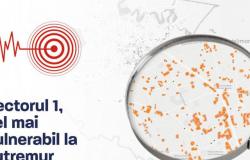The approaching festive period brings, as every year, challenges related to setting and planning budgets for shopping, gifts or holidays. How consumption and purchase decisions look, which are the most important purchase criteria for Romanian consumers in the current economic context, but also what perspectives they consider for the next period, were the main aspects pursued by EY Romania through the study carried out in advance of the Holidays Easter 2024.
From the point of view of expenses, which also come with a vacation period, the EY Study analyzed the answers regarding the amounts allocated for gifts, for the Easter meal, but also for possible vacations. When asked about waiting for possible discounts, only a little over half answered positively (51%), the rest not being interested in campaigns to buy gifts. No surprise from the point of view of the preferred source of purchases, in the sense that the majority opt for shopping in a combination of online and physical stores (41%). In the comparison between the two channels in discount campaigns, almost a third of the total ticked the option “mainly online” (29%), categorically exceeding those who indicated the singular options: only online stores – 3% or only stores physical – 2%.
The respondents of the Study indicated, in proportion of 77%, that they did not save to make Easter purchases. This answer can be correlated with the type of income made by the respondents, who were located, in their vast majority, in the above-average, high and very high income segment.
The expenses for the Easter meal will be higher than those for gifts, considering that almost half of the respondents said that they will spend from 400 to 1,000 lei (49%), and the next percentage, with 25%, is that of to people who will spend between 1,000 and 1,500 lei and above this threshold.
“The conclusion from the answers received is that the Romanians will not discount even this year, in the preparation of the Easter meal, an opportunity to reunite families, therefore the allocated budgets are significant for about three quarters of those interviewed”, said Georgiana Iancu, Partner , coordinator of the Indirect Taxes practice and leader of the Retail and Consumer Products sector, EY Romania.
How do you assess the value of this year’s Easter shopping, compared to the previous year, in the context of current inflation, was the next question, to which a third of respondents estimated that it would be 30% higher. The consumer evaluation was based on the trend already observed this year, of rising prices, even if the officially communicated inflation is far below this percentage. At the opposite pole to those mentioned are those who said they would spend less than 400 lei (27%).
“It is obvious that inflation has eroded purchasing power, especially among those who had constant incomes, so that almost a third of respondents indicated that they will spend the same or less than last year. As for the 25% of the respondents who said they would spend more, it is expected that they will be in the category of those with above-average and high incomes, who, as a rule, do not feel as acutely the price increases of basic products”, completed by Georgiana Iancu.
To the question regarding the purchase of plane tickets or vacation packages for May 1 or Easter, the overwhelming majority of those interviewed responded negatively (87%). It seems that it is not something out of the ordinary, considering that the Easter holiday is one in which families gather at home, but if we consider the fact that almost five million Romanians work outside the country, a greater effervescence would have been expected on flights and planned vacations, at least from this segment.
The second part of the EY survey referred to qualitative aspects and targeted purchasing criteria, both in the general economic context and in relation to the personal – material and financial situation. Thus, to the multiple-choice question regarding the importance of specific purchase criteria, respondents were asked to rank them on a scale from 1 to 5 (1 = completely unimportant, 5 = very important). The majority (93%) indicated quality as the most important, followed by those for whom the price matters (80%), the origin of the products (63%) and proximity (53%). Criteria such as the home delivery option, sustainability and resonance with the brand followed.
Regarding the financial impact of the current context (geopolitical, economic crisis, increase in inflation) on the personal situation, most respondents did not indicate a decrease in income, financial losses, or the addition of other jobs to supplement income. Also, 62% of respondents said they are now trying to save more than in the past, and more than half (60%) say they have succeeded in achieving their financial goals.
“We see from the answers received an obvious tendency to save, which may seem paradoxical in rather difficult economic times. The fact that two thirds of those interviewed stated that they try to save and the same number say that they managed to reach their financial goals, comes as good news against the background of the current economic context”, added Georgiana Iancu.
Tags: Romania study Romanian consumer behavior Easter holidays #26.04.2024
-





